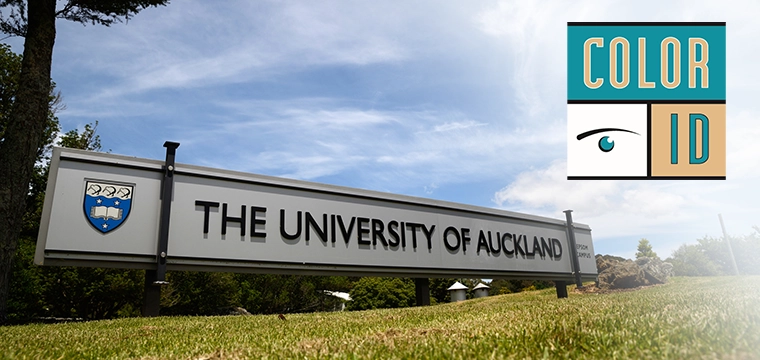Cash back, points toward scholarships promote card usage
More and more universities are launching loyalty programs that encourage students to use their cards beyond the dorm and dining hall. From LoboPerks to airline-style loyalty programs, program administrators are searching for ways to give students more mileage from the student ID.
LoboPerks, named after the University of New Mexico’s wolf mascot, is a discount program featuring more than 100 Albuquerque merchants. That’s quite a feat, considering the program started with just 19 in August 2011.
The program serves 29,000 students and has an impressie range of merchants, including restaurants, beauty salons, cell phones providers, computers shops, furniture rentals and fitness facilities, says Carolyn Hartley, manager of ID Card Services at the university.
Discounts can be hefty, including half-off deposits at apartment complexes or a $100 discount on used car, says Hartley. The loyalty program also serves faculty, staff and employees of the university hospital.
The LoboPerks Web site lists all participating merchants, and a student needs only present the Lobo Card to take advantage of the discounts.
Currently, the school receives nothing from the merchants, says Hartley. In fact, it costs the merchant nothing to participate in LoboPerks, other than the discounts offered.
“We are hoping to get some small revenue stream by increasing marketing opportunities for vendors but we haven’t come up with anything yet,” says Hartley.
The program includes a weekly email, an online ‘spotlight’ vendor of the week and an email list to let students know of new vendors or changing discounts.
She points out that the school doesn’t divulge the student email addresses to vendors. “It’s not intended for students to be solicited,” says Hartley. The program is not tied to the school’s LoboCash declining balance program so students can pay for discounted services however they choose, says Hartley.
Hartley modeled LoboPerks after a program at Indiana University-Purdue University. “I saw this at the NACCU conference and said this is way cool and we should have something here. I never in a million years thought this program would grow as quickly as it did.”
Advertising the program was not as difficult as she first thought. “Marketing is not my forte, but I did what I knew how to do. I talked it up, even to total strangers.” Hartley created a business card about LoboPerks that she includes in the envelope that contains the Lobo Card when students first register. “I’m getting the word out one perk at a time,” she jokes.
Instead of going with a discount program, the University of Alabama recently rolled out Crimson Spirit Loyalty Points, a system similar to airline miles. Molly Lawrence, associate vice president of student affairs, says the school was looking for a way to encourage students to participate in events that are more academic in nature rather than athletic or social.
“Students receive points for attending events like plays, athletic events with low student participation and academically-oriented events,” says Lawrence. “At the end of every semester prizes are awarded.”
All students have to do when they attend the event is swipe their ID, says Jeanine Brooks, director of the university’s Action Card program.
At each event, student staffers equipped with iPods or iPads swipe student ID cards. The iPod Touch 4 fits into a sleeve that enables the card to be swiped. For an iPad, a reader is attached to the device. In either case, an app is downloaded from Apple’s iTunes store to power the service.
“The reader can be used all over campus with WiFi,” says Brooks. “We hand students the iPod, show them where the app is and they swipe cards.”
It works well and the university doesn’t have to worry about losing a $3,000 reader. “We’re giving them $500 worth of equipment instead,” explains Brooks.
The school publishes a list of events where students can receive points. “Students can go online to view their point total,” says Lawrence.
Since the points system is new, it’s too early to measure results. The school is starting a marketing push in the spring, says Brooks, which is when the program will officially launch. “We’ve been testing it on several events, specifically student government events,” says Brooks.
“SGA will take the lead promoting Crimson Spirit,” says Brooks. “We do an electronic newsletter and we’ll also utilize the school newspaper and use social media.”
Prizes will include rewards such as $100 scholarships that can be used to purchase books and related equipment, says Lawrence.
Dalhousie University in Nova Scotia, Canada offers a loyalty program similar to LoboPerks, except its discounts are capped at five percent. Its 23,000 cardholders include staff, faculty and students.
Lisa Boutilier, manager of the DalCard, says the ID enables students to earn five percent off purchases at specified off-campus merchants and at most on-campus locations.
“Purchases made at the bookstore and at food locations qualify for the five percent discount,” says Boutilier. The only thing not covered is groceries. Already more than 20 off-campus merchants offer discounts for DalCard users.
The five percent goes into what Boutilier calls the “loyalty bucket.” Each week the card office runs reports showing what the cardholder has earned. The funds are then deposited back on to the card and used for the next transactions. The next time the cardholder makes a purchase using the card, the first purse accessed is the loyalty account, says Boutilier.
The loyalty program was first established in 2000 to encourage students to use the DalCard as more than just an ID, says Boutilier. “Use of the DalCard keeps the line moving in the cafeteria and is quicker than debit or cash,” she adds.
There are several purses on the DalCard: including a convenience account, FoodBucks, bookstore and the loyalty account. When a student earns five percent in the bookstore, it goes into the bookstore account, which means it can only be spent in the bookstore, says Boutilier.
Nearly 97% of loyalty dollars earned are redeemed. “That’s phenomenal,” says Boutilier. “The program is obviously working.”
Heartland Campus Solutions, which provides campus card solutions for Dalhousie, is seeing increased interest in loyalty programs across its client base, says Fred Emery, vice president and general manager at the company. The types of programs are different depending on the school. “Sometimes we provide discounts off the purchase automatically,” he says, “most doing like five percent.” He sees more and more schools considering a points-based system as well.
“We’re constantly looking for ways to enhance the program to get students to keep using the card,” says Emery. “They really seem to love it.”




